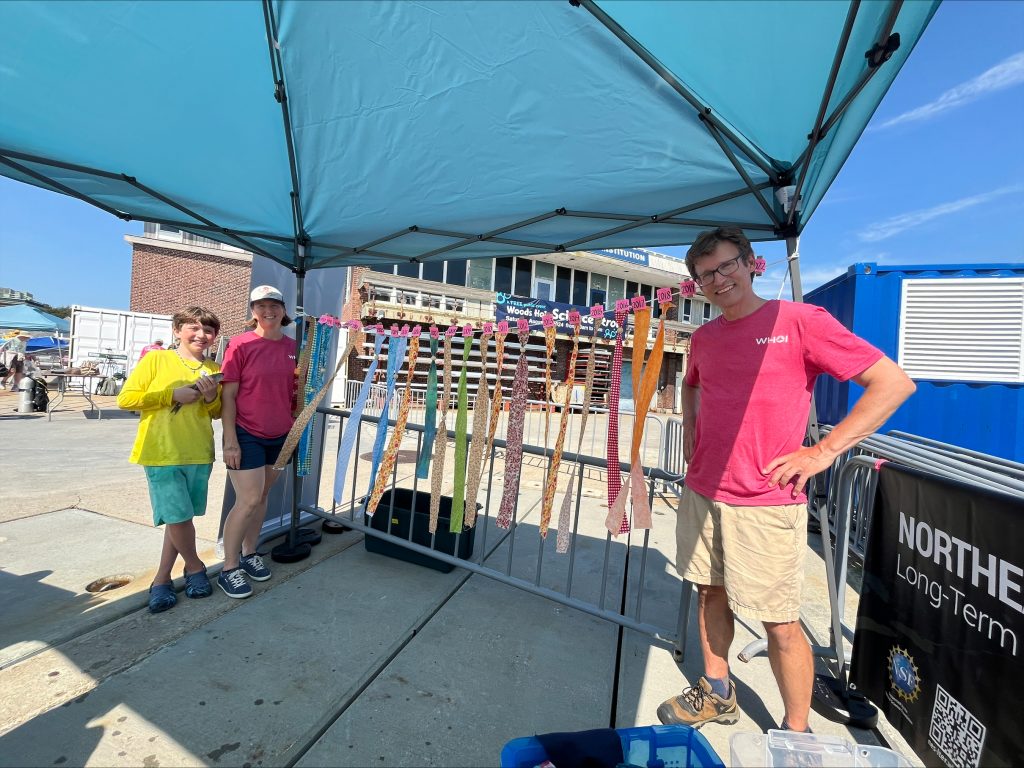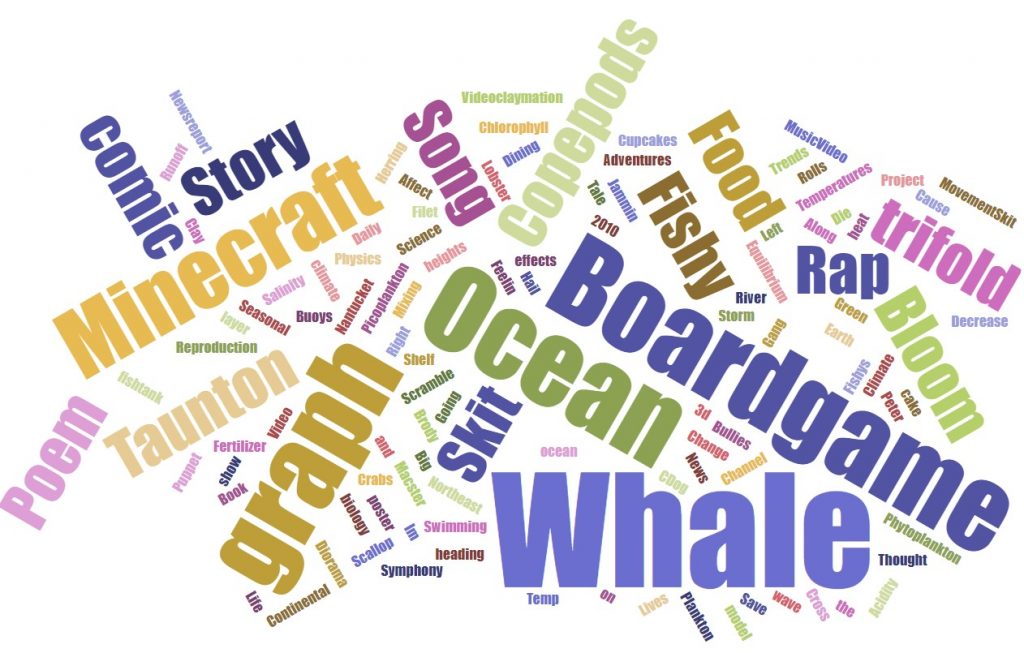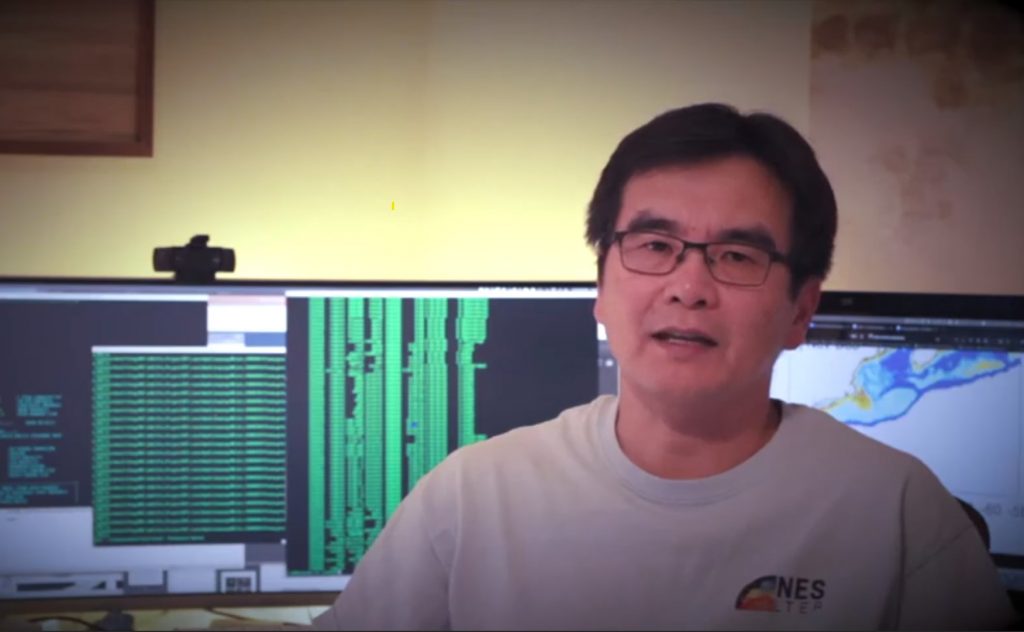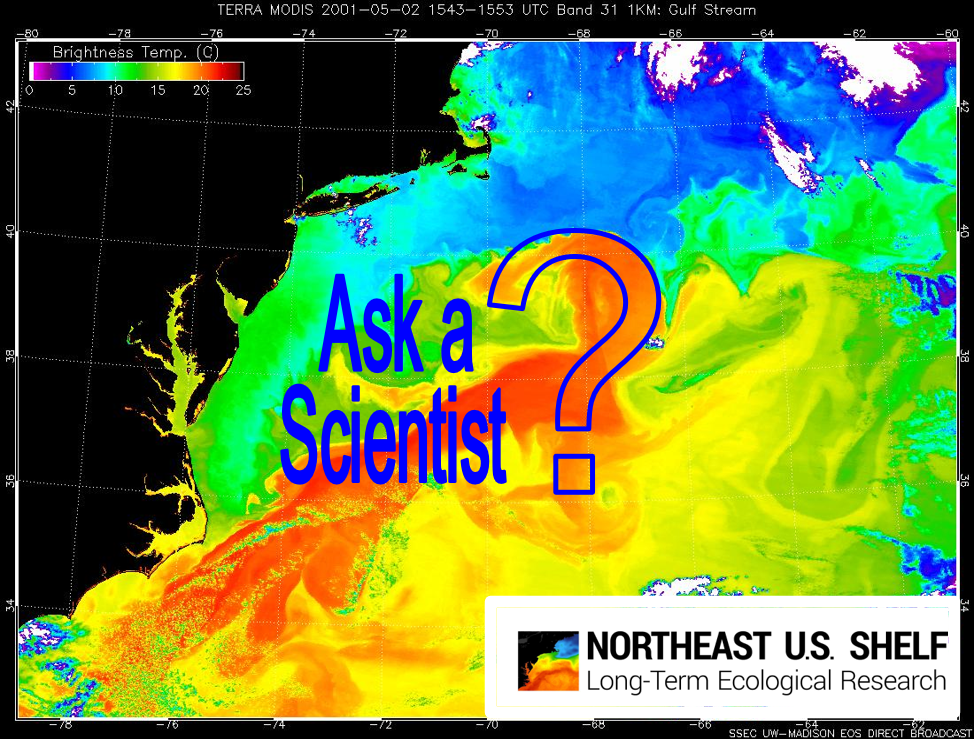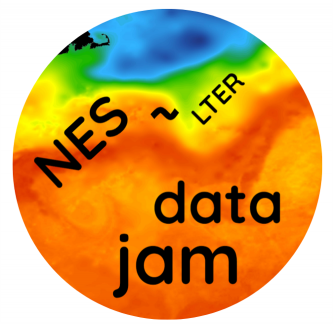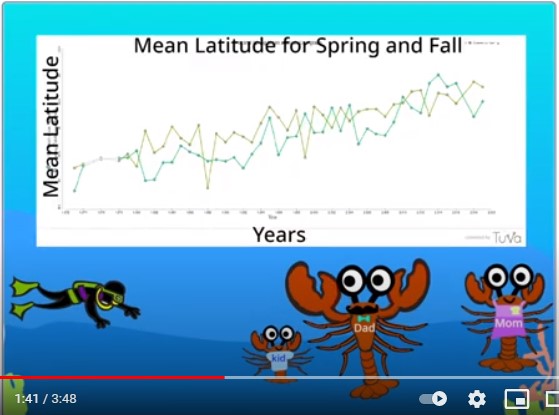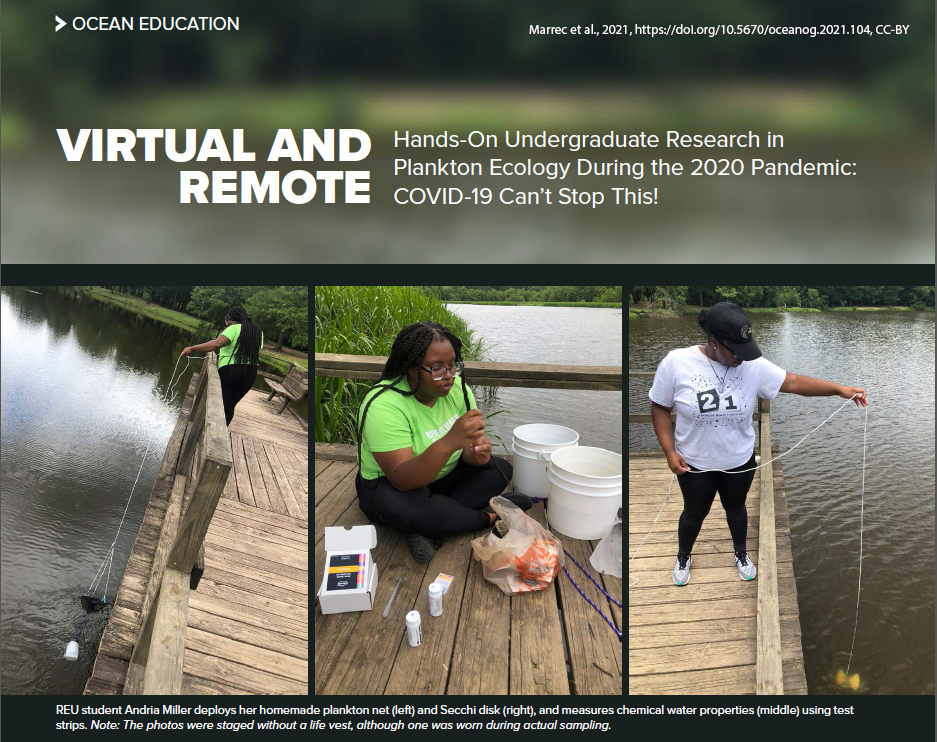Education News
Strolling Through Woods Hole
Brett, Joel (not pictured), Kate and her son hosted a tent as part of the Woods Hole Science Stroll to share about our work. Over 2000 visitors learned about forage fish, our transect line and seasonal work, and helped create a dataset quipu showing warming ocean temperature and how that affects fisheries species like lobsters.…
Read MoreFormer REU Publishes Research
S. Alejandra Castillo Cieza was an REU in Co-PI Rachel Stanley’s chemistry lab at Wellesley College in 2020 and 2021. It wasn’t just a pandemic pushing Alejandra to dig deeper into data analysis and lab work. She’s driven to unraveling data-driven stories and sharing them as she is now pursuing her PhD in Biology at…
Read MoreUndergraduate students present research on the Northeast U.S. Shelf ecosystem
This summer the Northeast U.S. Shelf Long-Term Ecological Research (NES-LTER) project hosted three undergraduate researchers in Woods Hole. All three presented posters at Woods Hole Oceanographic Institution (WHOI)’s annual summer student poster symposium held on August 10, 2023. Victoria Abunaw, a rising senior in Earth and Atmospheric Sciences at Cornell University, participated in WHOI’s Summer…
Read MoreData Jam Creativity Continues into 2022-23
In our fifth consecutive year of Data Jamming as part of education and outreach for the Northeast US Shelf Long Term Ecological Research (NES-LTER) project, we are pleased to announce the winners! From 30 full Data Jam projects (116 students) and 6 Mini Jam projects (23 students), 3 high schools, and 2 middle schools– we commend…
Read MoreData Jam 2021-22 Jammin’ more than ever
120 students and 38 projects from grades 7 through 12 generated raps, a symphony, dancing scallops and wind and satellites, claymation, cupcake data points, board games, poems, comic strips, and puppet shows. Students used 13 different datasets from the provided Data Jam datasets and entertained 17 judges from the NES research team for days. While…
Read MoreAsk a Scientist- Dr. Rubao Ji, Tue Jan 25
The North Atlantic Right Whales depend upon a rich diet of copepods during their summer months in the Gulf of Maine and along the Northeast US Shelf. Understanding and predicting how changes in the ecosystem might affect the food chain leading up to these endangered whales is critical. Dr. Rubao Ji at the Woods Hole…
Read MoreAsk a Scientist– series debut Dec 16, 2021
Because we value data literacy, the NES-LTER is debuting a new webinar series with a new format! What: Ask a Scientist– Phytoplankton Fingerprinting: a DataJam dataset and its creator When: Thursday, Dec 16, 3:30-4:40 EST With Whom: PhD Candidate, Diana Fontaine, URI-GSO For Whom: NES-LTER Schoolyard Educators (you may sign up if you haven’t already) In this free one hour…
Read MoreCreativity and Data Literacy– Together in a Jam!
While not all learners will become data scientists, they will all become data users and consumers. Visualizing, analyzing, and making decisions based on data are skills essential to 21st-century living: necessary for both work and personal life. The LTER Schoolyard program from the Woods Hole Oceanographic Institution is once again offering its Data Jam which emphasizes creativity in presenting data. Doing the Data…
Read MoreScratching and Painting and Animating with Data- That’s Data Jam
Our team of judges have reviewed 26 projects involving 83 students in grades 8-11 from Massachusetts. In our third year of competition, we’re seeing students challenging themselves with more advanced datasets and new creativity in communicating their data stories. In a challenging year of remote teaching and learning, the technology skills of students and teachers…
Read MoreHands-On Undergraduate Research in Plankton Ecology During the 2020 Pandemic
New article highlighting undergraduate student Andria Miller’s research with NES-LTER postdoc Pierre Marrec and PI Susanne Menden-Deuer: “OCEAN EDUCATION • Virtual and Remote—Hands-On Undergraduate Research in Plankton Ecology During the 2020 Pandemic: COVID-19 Can’t Stop This!” in Oceanography (https://doi.org/10.5670/oceanog.2021.104).
Read More


